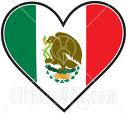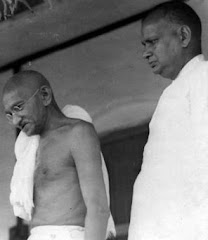All politics in El Salvador today have their roots in the 12-year civil war of the 80s and 90s. Few American have much idea of how bad that war was, aside from the fact that something like 80,000 people got killed.
Furthermore, Americans don't remember the WAY they died -- but Salvadoreños do. The right-wingers, who were either government forces or had establishment links, had killing squads that killed and disappeared people in distressing numbers. Torture before death was routine. Ditto rape. High-school boys were drafted - or shot. Families were killed if it was even suspected that a member was a guerrilla. Whole villages were obliterated, inhabitants massacred and buildings razed. Guerrillas killed right-wingers too, but the government squads were the most feared.
During the Civil War, fear ruled everyone. We know more supporters of guerrillas got killed by the right wing than the other way around simply because of the figures: if the killings were equal, 40,000 would have died on each side, but we know that the deaths were disproportionate; many, many more peasants and middle class left wing supporters died than soldiers or right-wingers.
The two main political parties today are ARENA, and FMLN. When the peace accord was signed in 1992, the right wing establishment became ARENA and the guerrillas became FMLN. As you can imagine, there´s very little trust between them.
Since the peace accord, there´s been more freedom, more mobility, and a gradual increase in the capacity to ensure fair and transparent elections. We attended a talk by a civil-rights lawyer who told us that we couldn´t even have had such a meeting during the war years.
In the last five years, for example, there have been other reforms as well. One allows for Salvadoreños living abroad to vote by absentee ballot and the other, called residential voting, ensures that more Salvadoreños can vote near where they live. In the past, many country people had to travel long distances to vote, which was a real hardship for them. Also, there were reports of wide-spread voter fraud -- busloads of Guatemalans with false papers, for example, who were being paid to vote. With more local voting places, not only can more country people vote, but it will be easier to check up on Anyone with a Guatemalan accent.
 |
| Press conference announcing the Election Monitoring |
This is where the election monitoring comes in. The Salvadoreños are confident that they can have better elections than some in the past; that they can identify non-Salvadoreños and curb fraudulent voting; that they can resist the pressures to buy and sell votes. We monitors will be there to testify to the world that the Salvadoreños did it themselves, and did it right. We´ll also stay for the vote-counting, so we can testify as to the results, at least locally.
There aren't enough of us to blanket the country. But we´ll be a presence. And it´s heartening for us to see how genuinely enthusiastic and hopeful for the future the Salvadoreños are.
Not that the elections will solve all of El Salvador´s problems. But they´re one of the steps on the road to a stable and peaceful future.











1 comment:
Good post. Keep it up guys!Will Tell Crawford County Peaceseekers
Post a Comment